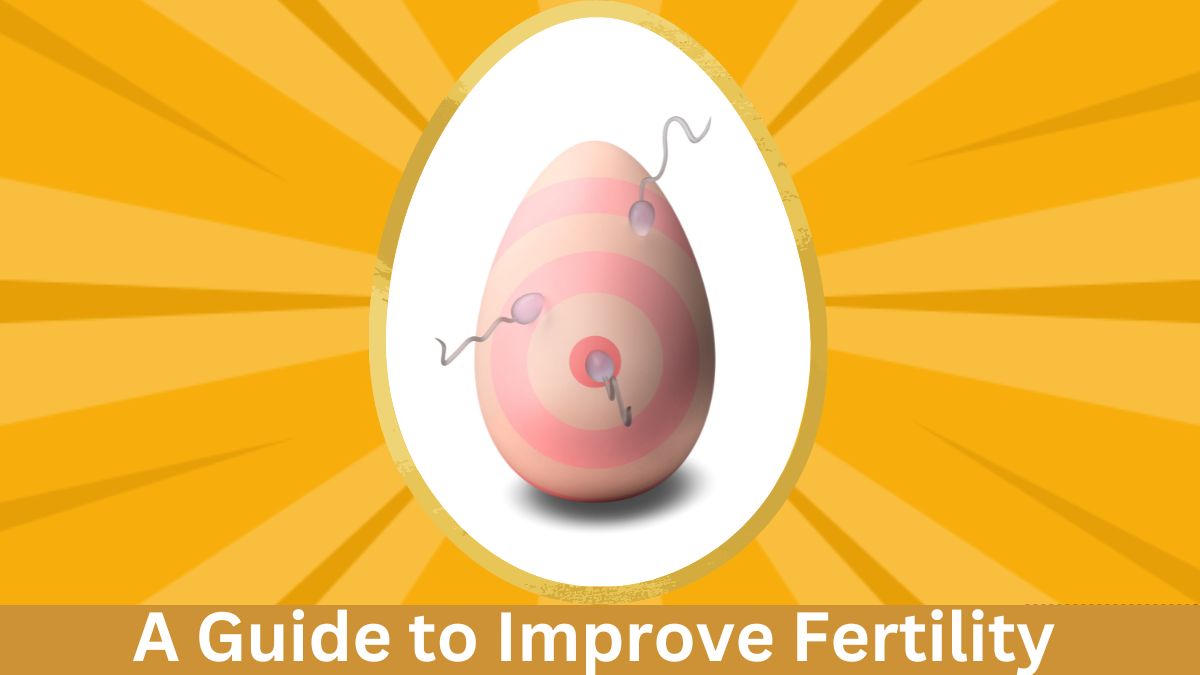Pre-Pregnancy Preparation: A Guide to Improve Fertility healthy lifestyle
Overview of pre-pregnancy preparation:
Pre-pregnancy preparation is the process of getting your body and mind ready for pregnancy. This can include physical, emotional, and practical steps, such as:
Taking prenatal vitamins to ensure that you have enough folic acid and other essential nutrients.
Making lifestyle changes, such as quitting smoking, reducing alcohol intake, and maintaining a healthy weight.
Talking to your doctor about any health conditions and medications.
Talking to your partner about your plans and goals for pregnancy.
Learning about prenatal care and childbirth.
Saving up for medical and other expenses associated with having a baby.
Optimizing physical health:
Exercise regularly: Regular physical activity, such as walking, swimming, and yoga, can help improve circulation, prevent excess weight gain, and reduce stress.
Get enough rest: Adequate sleep is important for physical and mental well-being during pregnancy. Aim for 7 to 9 hours of sleep each night.
Avoid harmful substances: It is important to avoid alcohol, tobacco, and drugs during pregnancy as they can cause harm to the developing fetus.
Diet and nutrition in Pregnancy:
Folic acid: Folic acid is important for the healthy development of the fetus’s brain and spinal cord. Aim to consume at least 400 micrograms of folic acid daily through fortified cereals, green leafy vegetables, and legumes.
Protein: Pregnancy increases the need for protein to support the growth of the fetus, placenta, and uterus. Good sources of protein include eggs, dairy products, lean meats, poultry, fish, legumes, and nuts.
Iron: During pregnancy, the body’s iron requirements increase to support the growth of the fetus and placenta, and to prevent anemia. Iron-rich foods include red meat, poultry, fish, beans, lentils, and iron-fortified cereals.
Calcium: Calcium is important for the development of strong bones and teeth in the fetus. Good sources of calcium include dairy products, leafy green vegetables, almonds, and tofu.
Omega-3 fatty acids: Omega-3 fatty acids are important for the development of the fetal brain and eyes. Good sources of omega-3s include fatty fish, such as salmon, and flaxseeds.
Hydration: Staying hydrated is important during pregnancy to prevent dehydration, headaches, and constipation.
Male fertility:
Keep track of ovulation: Understanding when you are ovulating can increase the chances of getting pregnant.
Maintain a healthy lifestyle: Eating a balanced diet, getting regular exercise, and managing stress can all positively impact fertility.
Limit alcohol and caffeine intake: These substances can negatively impact fertility and should be limited.
Quit smoking: Smoking can cause fertility problems for both men and women.
Seek medical advice: If you have been trying to conceive for a year without success, consider seeking medical advice.
Try different positions: Experimenting with different sexual positions may increase the chances of sperm reaching the egg.
Have sex regularly: Regular sexual intercourse, two to three times a week, can increase the chances of getting pregnant.
Take prenatal vitamins: Taking prenatal vitamins can help prepare your body for pregnancy.
Be patient: It can take time to conceive, so be patient and don't stress.
Stay positive: Maintaining a positive outlook and reducing stress levels can help increase the chances of getting pregnant.
Remember, every couple's journey to pregnancy is different, so don't get discouraged if it takes time. Consult your Best IVF Doctors if you have any concerns.
Pre-pregnancy preparation is crucial for couples who are planning to have a baby. It is a time to focus on improving fertility and increasing the chances of conception. There are several steps couples can take to prepare for pregnancy and ensure that they are in the best possible position to conceive.
First, couples should have a preconception visit with their healthcare provider. This is an opportunity to discuss any health concerns, such as chronic conditions or medications, that may impact fertility. Women should also receive a preconception checkup to ensure that they are healthy and ready to become pregnant. This may include a pelvic exam, Pap test, and blood tests to check for any health issues.
Second, couples should maintain a healthy lifestyle. This includes eating a balanced diet, getting regular exercise, and avoiding drugs, alcohol, and smoking. Women should also take prenatal vitamins and folic acid to support healthy fetal development.
Third, couples should take steps to improve their overall reproductive health. This may include addressing any medical conditions, such as polycystic ovary syndrome (PCOS) or endometriosis, that can impact fertility. Women can also work with their healthcare provider to manage menstrual cycle irregularities or hormonal imbalances.
Fourth, couples should consider sperm analysis for men and track ovulation for women. Sperm analysis can determine if there are any issues with sperm count, motility, or morphology. Women can track ovulation using ovulation prediction kits, basal body temperature tracking, or fertility tracking apps. Couples should communicate openly and honestly about their plans for pregnancy. This can help prevent any misunderstandings or disagreements about when or if to start a family. Couples should also discuss any financial or logistical considerations, such as work schedules or childcare options.
In conclusion, pre-pregnancy preparation is an important time for couples to focus on their fertility and overall reproductive health. By working with their healthcare provider, maintaining a healthy lifestyle, tracking ovulation, and communicating openly, couples can increase their chances of conception and have a healthy pregnancy.




Comments
Post a Comment